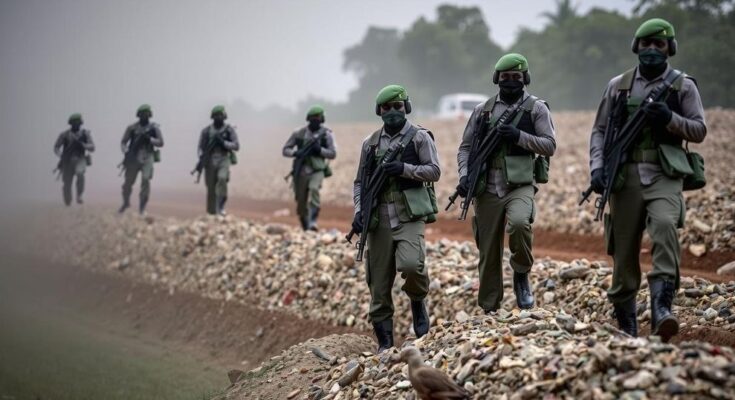A UN report indicates that rebels in eastern Democratic Republic of Congo illegally exported over 150 metric tons of coltan to Rwanda, severely contaminating the mineral supply chain. The M23 movement’s control over Rubaya allowed these illicit operations to flourish, posing challenges for technology manufacturers regarding conflict-free sourcing. The report highlights the need for improved regulatory measures and complicates foreign companies’ procurement activities in conflict-affected areas.
A recent United Nations report has highlighted the alarming developments in eastern Democratic Republic of Congo, where rebel groups, particularly the M23 movement, are suspected of illegally exporting significant quantities of coltan to Rwanda. Upwards of 150 metric tons were exported last year, resulting in unprecedented contamination of the mineral supply chain within the Great Lakes Region. This violation surfaced following M23’s capture of mineral-rich territory after intense conflict, leading to control over critical transport routes, which facilitated the mixing of Congolese minerals with those from Rwanda.
The context of this issue lies within the ongoing conflict in eastern Democratic Republic of Congo, where various armed groups have exploited the region’s rich mineral resources. Coltan, a vital mineral used in various electronic devices, has been at the center of these disputes. With minerals often sourced from conflict areas under scrutiny, manufacturers face increasing challenges in adhering to ethical sourcing practices. The M23 group’s alleged support from Rwandan authorities exacerbates the complexities surrounding the region’s mineral market and its implications on international supply chains.
The report underscores the urgent need for stricter oversight of mineral sourcing from conflict zones, particularly as technology companies grapple with compliance regarding the use of conflict minerals. The revelations regarding the M23’s operations not only jeopardize the integrity of the minerals market in the Great Lakes Region but also pose potential legal ramifications for companies, such as Apple, implicated in these supply chains. As such, both regional stability and ethical sourcing practices remain critical issues demanding attention.
Original Source: www.hindustantimes.com




